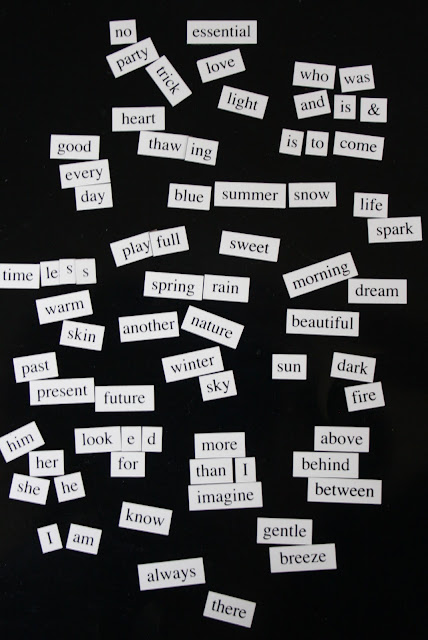Words fail me
It was left to my husband the philosopher to introduce the subject of language and our approach to God at this week's Safe Space. Having been told not to make it too philosuffy*, he began with a quote from Wittgenstein:
"The limits of your language are the limits of your world."
As someone who loves words, whose private pleasures almost always involve reading, writing, crosswording and so on, I tend to view words as a rich source of enlightenment, rather than as a barrier. But of course, that's just the good words - the words that clarify, or mystify in a helpful fashion. And the words that do it for me are likely to be different from those that do it for you.
The trick when approaching the God who is so much more than we can imagine, or describe in words, is to seek diversity, drawing from the language and traditions of many expressions of the Christian faith. As my philosopher put it: "It's like being given a new 50 colour pencil set for Christmas when you've only had five felt tips to play with before."
But how do we deal with the fact that so many different voices and traditions tend to contradict each other? What about those voices that are speaking pure hogwash? Or, more dangerously, those that are leading one gently up the garden path?
The only test we have is this: can we imagine Jesus saying it? Is the substance of what is being said in keeping with his teachings? WWJS?, if you like.
Without the person of Jesus, we can say little about God of which we can be sure. When Moses asked God for his name, the only answer was 'I am'; and yet throughout the Old Testament there is a cacophony of descriptions and names for God, that betray this silence. He is both a warrior and a peacemaker, friend and judge. He is on high; close by; a strong tower; a mother hen. He is fire and light and deep darkness. He is shining revelation and treasure found in secret places. He is storm clouds and morning dew. All are images: partial, provisional, inspiring but capable of being misused and misunderstood. Treat with caution. 'I Am' will not be named.
Even our basic fall-back words are fraught with danger. Thomas Aquinas pointed out that when we use the word 'love', we think of human love; but even the best of that is a poor comparison for the love of God, which is timeless, infinite and pure.
We spent some time thinking of those words used in worship that help or hinder us, with a particular focus on male and female imagery, and negative descriptions of ourselves as typified by the prayer of humble access.
As a poet I am aware that I am overly fond of certain words when speaking of God. My favourite is 'wild', perhaps in reaction against oversanitisation of our untameable God. It denotes unpredictability; lavish ferocity; a lack of restraint. Qualities that I don't see much in my own, well-ordered, life - perhaps to my own detriment, at times. Focussing on this attribute of God speaks to me of something I want to see more of in my life, as well as speaking of the nature of God. But God's nature is in balance: he is also gentle, wise, measured, careful. Without his restraint we would not be.
In John's gospel we read that 'the Word became flesh, and dwelt among us.' Jesus is God's description of himself. The Word that set the planets in motion, living and breathing and walking around Palestine.
Until I can get my head fully around that, I will have to rely on a few other, smaller, words.
*Philosuffy, adj: obscurely full of philosophical references



Comments